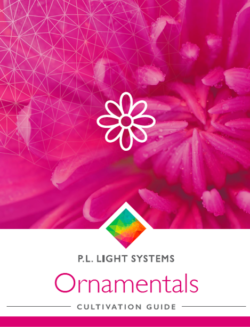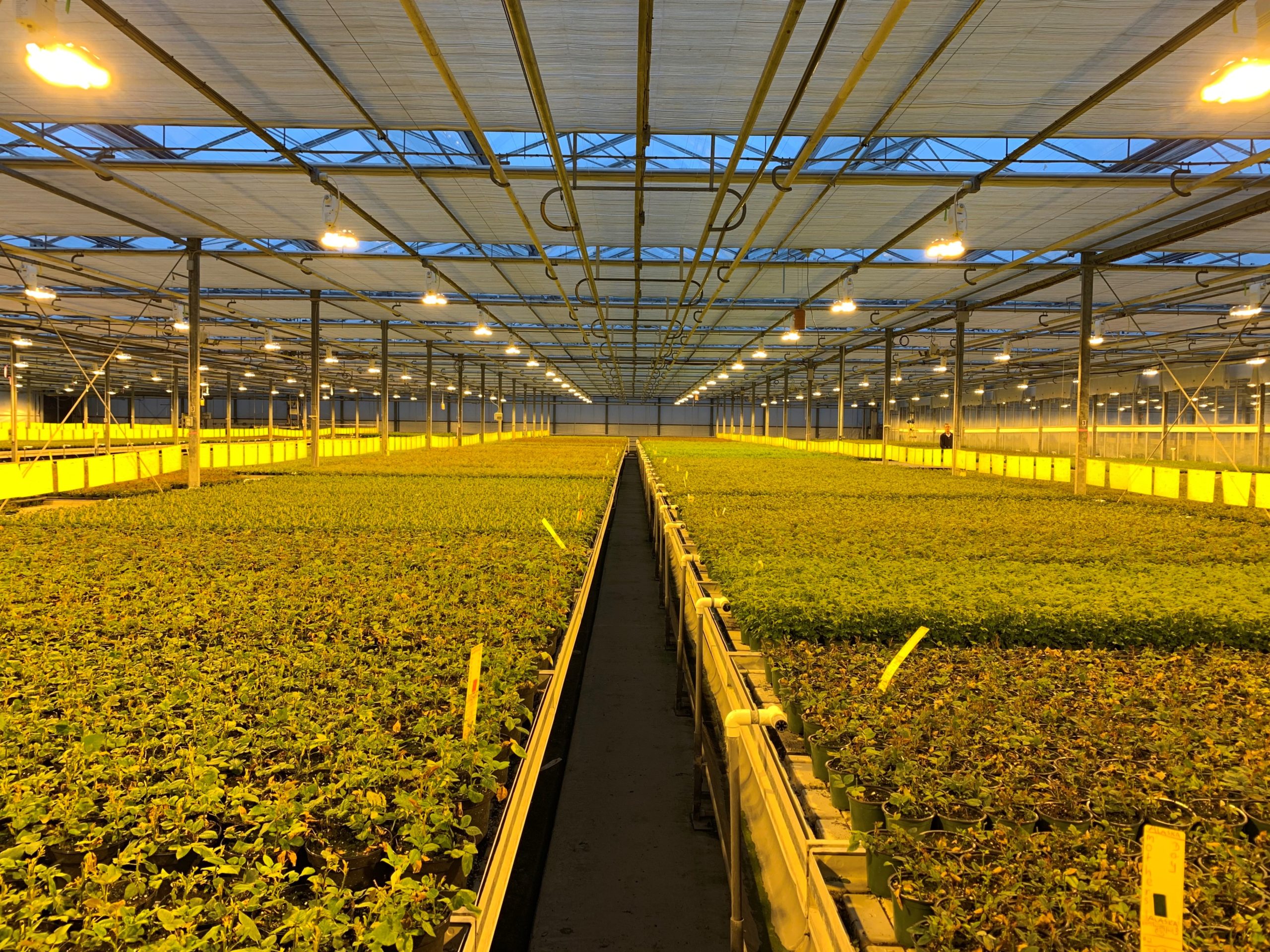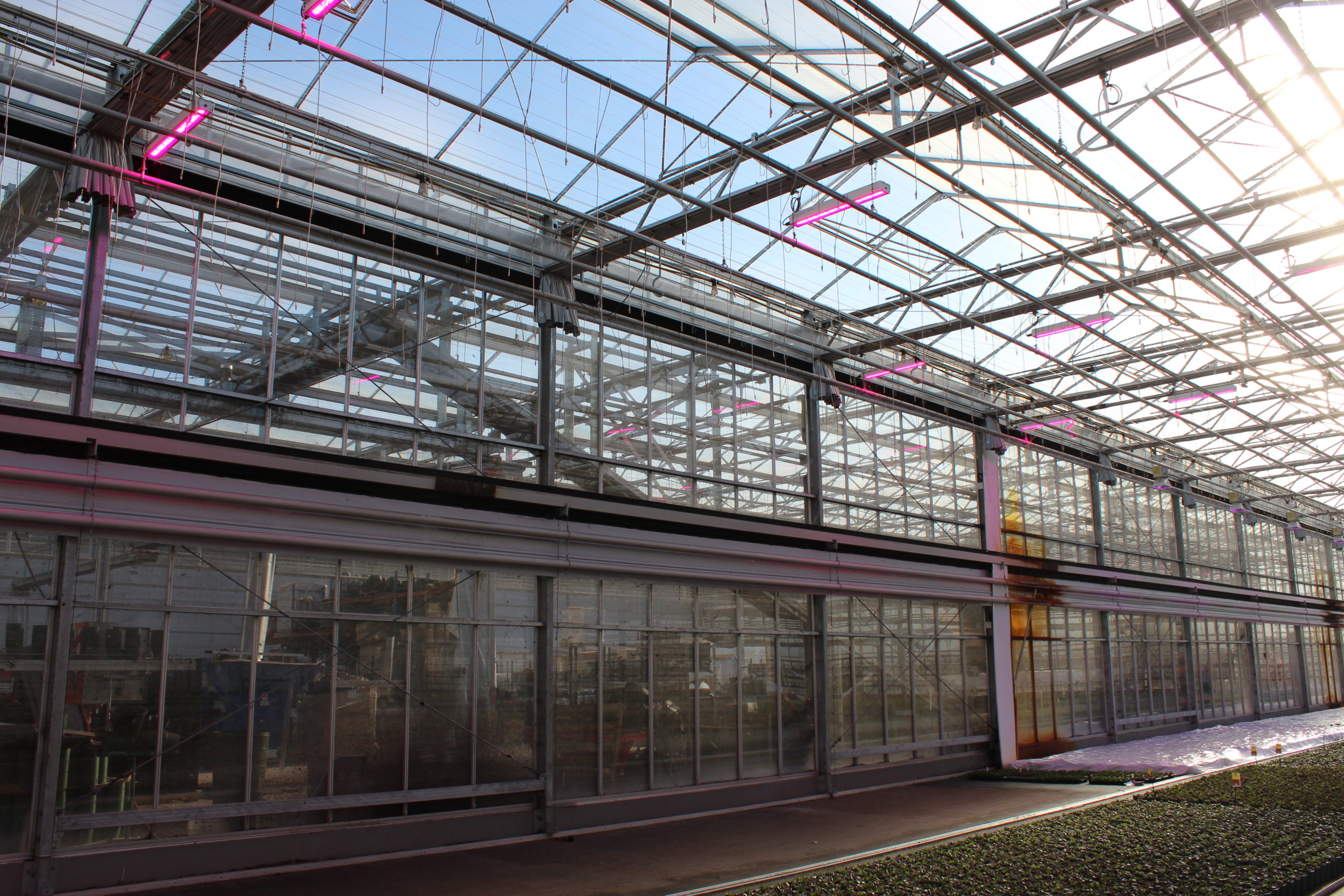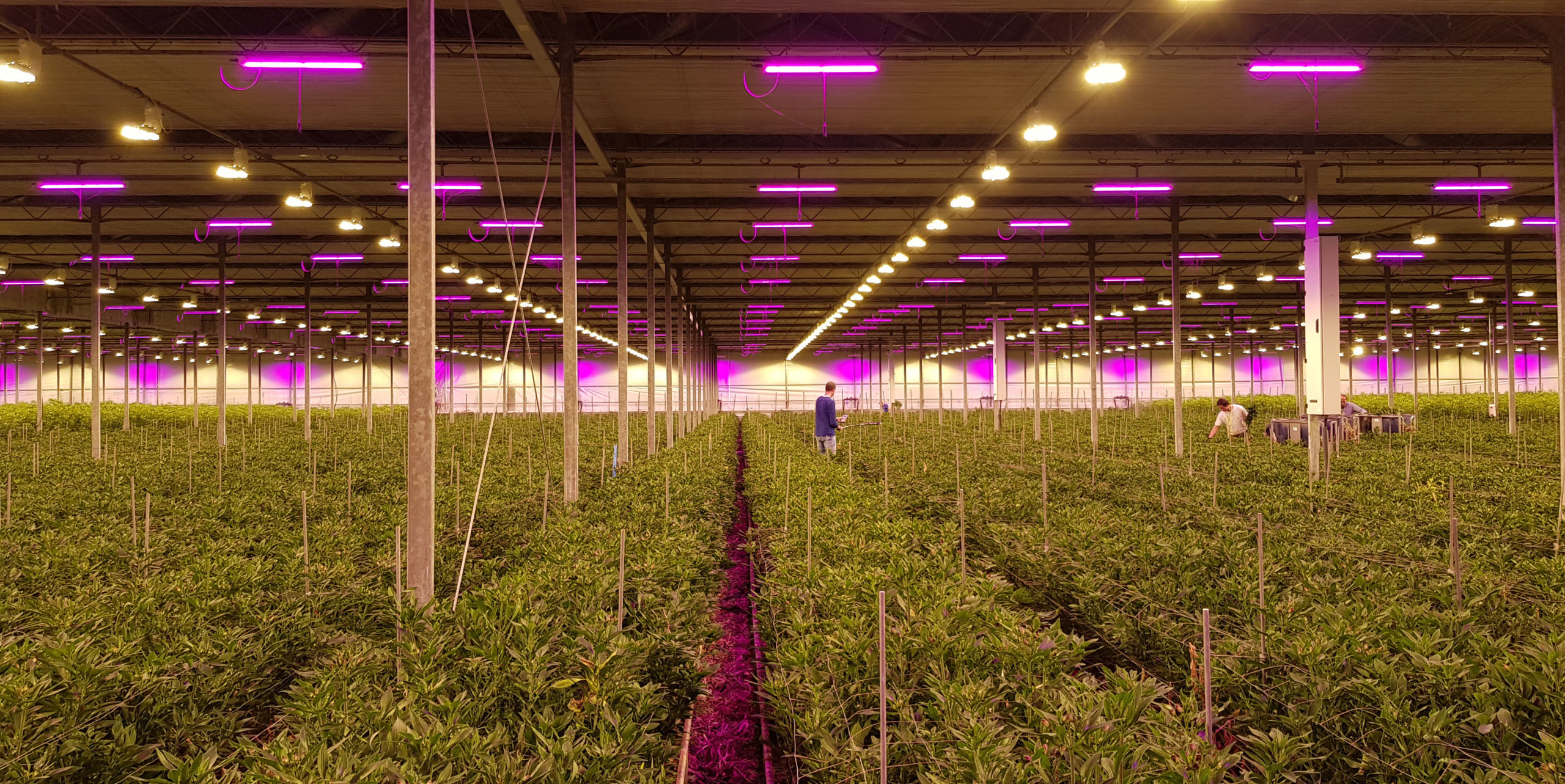The ornamental horticultural industry is diverse, comprised of flowering potted plants, cut flowers, and bedding plants. Ornamentals have specific lighting requirements for growing high-quality and consistent crops. Since many bedding plant varieties are started in winter, lighting becomes important for managing early growth stages and ensuring products are ready to be shipped to customers. Cut flowers and flowering potted plants need supplemental lighting in low light times of the year to avoid slow growth cycles and grow uniform, healthy plants.
Lighting is tied to overall quality and yields. Therefore, having a reliable lighting system that delivers on the goals you want to achieve is important. With so many lighting options, deciding which to go with can become overwhelming. At P.L. Light Systems, we build and sell both HID and LED luminaires. We have worked with North and South American growers for 40 years, helping them build their businesses and achieve their goals.
 For more information download our Ornamental Crop Cultivation Guide
For more information download our Ornamental Crop Cultivation Guide
– Explore the basic concepts of how the light environment affects plant growth
– Learn about lighting requirements for cut flower, bedding plant and flowering potted plant production
– Discover what lighting system works best for your application
HID LIGHTING SYSTEMS
With ornamental crops, whether bedding plants or cut flowers, HID technology remains the most popular lighting choice for initiating flowering and optimizing photosynthesis.
For greenhouse applications, we recommend the high-efficiency NXT series, which enables growers to achieve optimum light intensity uniformly across the surface of the crop with fewer luminaires. We have worked with numerous growers, such as Eurosa Farms and Burnaby Lake Greenhouses, who have retrofitted their greenhouses with new NXT2s with HPS lamps. Achieving high-quality plants, while saving money on lighting costs were both important aspects of installing new horticultural lights. Both growers have seen plant growth and quality increase by at least 30% and better energy savings compared to their old magnetic ballast luminaires.

LED LIGHTING SYSTEMS
LED grow lights are becoming increasingly popular thanks to their energy efficiency. For ornamental growers, we have seen businesses like Meyer’s Fruit Farms succeed in their propagation zones via increased crop cycles and improved plant growth under the HortiLED Top, versus their previous non-lit greenhouse. LEDs are great for propagation because the spectrum helps to grow compact, well-branched plugs that transplant easily. LEDs can also be a great solution for production plants. However, we recommend trialing a small area before any large LED installation, as different species respond differently to the same spectrum.
For propagation zones with low ceiling applications, we recommend the HortiLED Multi designed to be placed close to the crop canopy.
For high ceiling or greenhouse applications, we suggest using the high-efficiency HortiLED Top 2.0 in the RW(MB) spectrum for optimized photosynthesis. For sole-source indoor applications, the broad “Daylight” spectrum is best for plant growth and human working conditions.

HYBRID LIGHTING
In many cases, if you don’t want all LEDs, a hybrid LED-HPS application provides growers with the best of both technologies. A hybrid lighting solution is great for those wanting radiant heat from HPS lamps in the winter and an extended lighting season into the spring with LEDs. It can also help reduce costs by saving on the installation of additional infrastructure.

Ready to see what P.L. Light Systems can do for your growing operation? Get started with your own custom light plan or contact your local sales manager.


